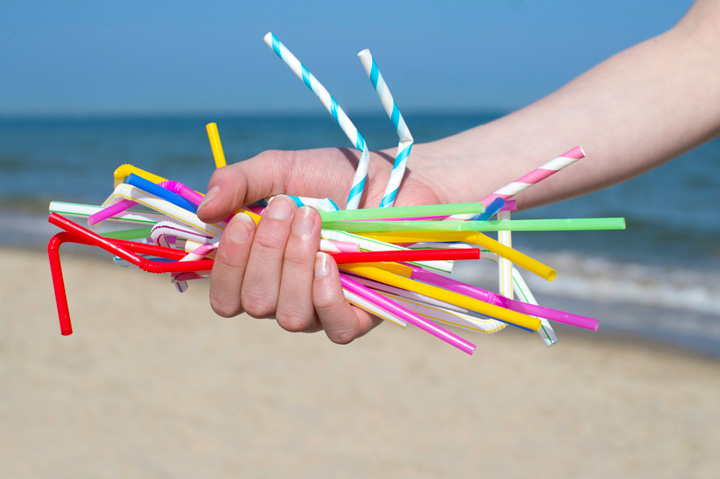CANADIAN NEWS June 21, 2022
Canadian Government Announces Timeline for Sweeping Plastic Ban
The plan begins with a prohibition on companies importing or manufacturing single-use plastic bags and other items by the end of this year. Promo firms in Canada are already seeing sales opportunities.
Canadian officials have announced plans for an extensive plastic ban across the country, which will go into effect beginning at the end of this year, and it’s already presenting opportunities for promotional products companies.
The measures will begin with a prohibition on the importing and manufacture of plastic products, including single-use plastic bags, straws, stir sticks, cutlery, takeout containers and six-pack rings for cans and bottles, by the end of this year. By the end of 2023, the sale of these items will be forbidden, and by the end of 2025, companies will not be able to export them outside Canada’s borders.

“Our government is all in when it comes to reducing plastic pollution,” said Environment Minister Steven Guilbeault during a news conference this week at a St. Lawrence River beach in Quebec City. The plastic ban in Canada was announced in 2020 and was initially slated to start going into effect last year. COVID delayed implementation until late 2022; the government plans to rid all landfills as well as beaches, rivers, wetlands and forests of plastic waste by 2030.
According to the federal government, companies in Canada sold 15.5 billion plastic grocery bags, 4.5 billion pieces of cutlery, 3 billion stir sticks, 5.8 billion straws, 183 million six-pack rings and 805 million takeout containers in 2019. A Deloitte study the same year found that less than a tenth of plastic waste is recycled in Canada.
The impending sanctions are looking promising for sales opportunities for promo companies, which can sell branded, reusable alternatives to the prohibited plastics. Russell Bird, owner of The Promo Addict (asi/302225) in Sherwood Park, AB, says they’re awaiting an increase in demand for alternatives to single-use plastic items. “I predict we’ll see more sales of higher-end bags like utility totes,” he says. “The cheaper nonwoven totes just aren’t very functional and don’t last the same way utility totes do.”
Bird says, since COVID, there’s a lingering concern over buying and using reusable straws and utensils. “I saw an uptick in demand for them prior to the pandemic, but fear of sickness and germs really ground that to a halt,” he says. “I rarely see people reuse straws anymore. Maybe as the pandemic moves into the rearview mirror and there are no disposable ones to choose from, consumers will be forced to change.”
Here’s the plan 👇
— Steven Guilbeault (@s_guilbeault) June 20, 2022
✅ 2022: ban on the manufacture and import of these single use plastics
✅ 2023: ban on the sale
✅ 2025: ban on the export
Together these actions will eliminate more than 1.3 MILLION tonnes of plastic waste. pic.twitter.com/9uMFdM5rVZ
Fortunately, forward-thinking customers of Innovatex Solutions Inc. (asi/231194) in Richmond Hill, ON, already bought alternative items, particularly bags, when the ban was first announced in 2020. “Most of our clients have been proactive and already made changes to accommodate the ban and be more sustainable,” says Ann Baiden, CEO and founder. “They changed to paper bags and alternative packaging back in 2020, but the current paper shortage isn’t helpful.”
Indeed, ongoing supply chain woes have complicated the return to normalcy that promo firms and end-buyers have been waiting for. Now, industries around the world are contending with a shortage of wood pulp, used in the manufacturing of paper and cardboard, due to an increase in demand because of plastic prohibitions combined with supply chain disruption as a result of the war in Ukraine; Russia is a major exporter of wood, used in the making of wood pulp. Experts say it could also lead to increased prices for, and shortages of, toilet paper.
Meanwhile, workers with the Canadian National Railway (CN) have gone on strike after failed negotiations over pay and benefits. As talks continue, CN says it’s implemented its operational contingency plan, which has so far mitigated supply chain impacts. Along with the Canadian Pacific Railway (CP), CN is one of just two railway companies that transport goods across Canada.

Promo for the Planet is your destination for the latest news, biggest trends and best ideas to help build a more sustainable and socially-responsible industry.
